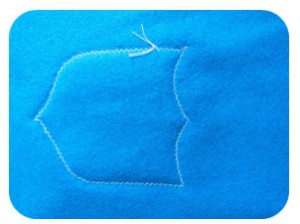 As winter winds down, people across the country will start throwing their fleece jackets into the wash for one last spin before months of closet storage. While many people won’t think twice about one load of laundry, unfortunately the environmental effects of this routine task will linger for a long time. Unlike cotton or wool, synthetic fleece releases tiny plastic fibers into wastewater that flows into lakes and rivers. These non-biodegradable materials then bind with other chemicals and cause health problems for plankton and other small sea creatures. Fish that eat these animals become infected as well, thus potentially polluting entire ecosystems.
As winter winds down, people across the country will start throwing their fleece jackets into the wash for one last spin before months of closet storage. While many people won’t think twice about one load of laundry, unfortunately the environmental effects of this routine task will linger for a long time. Unlike cotton or wool, synthetic fleece releases tiny plastic fibers into wastewater that flows into lakes and rivers. These non-biodegradable materials then bind with other chemicals and cause health problems for plankton and other small sea creatures. Fish that eat these animals become infected as well, thus potentially polluting entire ecosystems.
This problem haunted Alexander Nolte and Oliver Spies, a pair of surfing buddies who own a chain of outdoor apparel stores in Germany. The environmentally minded partners were shocked to discover that they could be considered polluters simply for selling artificial fleece products. So they began to brainstorm ways to safely clean microfiber materials in a regular washing machine. The result was Guppy Friend, a mesh nylon bag that allows soapy water to enter but prevents microfibers from leaving. The offending materials can then be easily removed and thrown away after the wash cycle. What’s more, the bag can withstand hundreds of washings while remaining intact and functional.
As Nolte and Spies started looking for investors, they grabbed the attention of the outdoor apparel brand Patagonia. The famously sustainable company had been researching microfiber pollution and instantly recognized Guppy Friend as a potential game changer. Patagonia gave the partners a $108,000 grant and will soon start selling the product in their stores. Still, convincing customers that they should buy Guppy Friend will be a different challenge entirely. “If Guppy Friend can appeal to consumers’ feelings around the negative impacts of microfiber pollution, it might be able to elicit them to spend $20 or $30 for the bag,” said Stanford University researcher Nik Sawe.
Questions:
- What can Guppy Friend do to convince consumers about the dangers of microfiber pollution?
- How does Guppy Friend’s partnership with Patagonia help build their brand?
Source: Mary Catherine O’Connor, “Microfibers Are Polluting Our Food Chain. This Laundry Bag Can Stop That,” The Guardian, February 12, 2017. Photo by Kelly.
